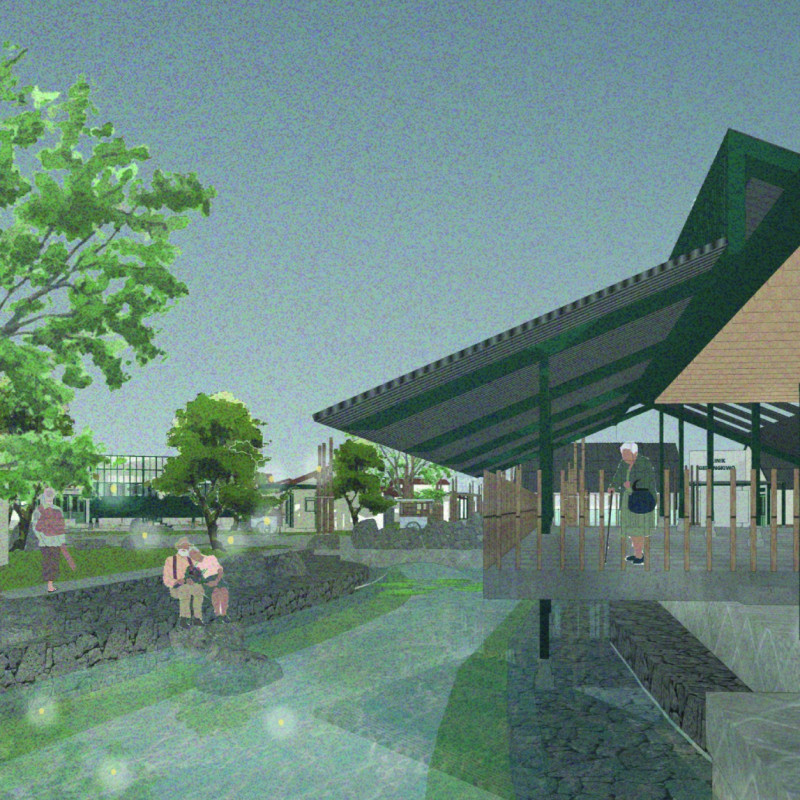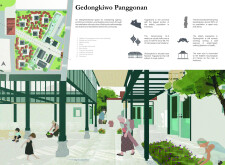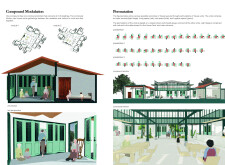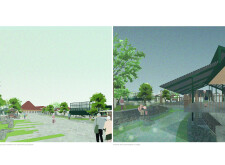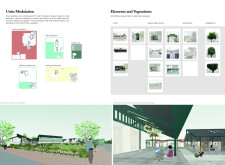5 key facts about this project
## Overview
The Gedongkiwo Panggonan project is located in Yogyakarta, Indonesia, within the Kampong Gedongkiwo neighborhood near the culturally significant Keraton Yogyakarta. Designed to meet the needs of the local elderly population, the project emphasizes intergenerational living by creating spaces that encourage communal connections and the sharing of cultural practices. It seeks to promote shared experiences while being sensitive to local traditions and inclusivity.
## Spatial Strategy
The layout consists of small modular units arranged around communal cores, which include kitchens and other common areas. Each module accommodates 7-8 dwellings that connect to a central communal kitchen, fostering social interaction among residents. The flexible configuration of these units allows for personalization while enhancing community engagement. Open spaces, including plazas and promenades, are designed to facilitate social interactions, encouraging residents to gather for various activities.
## Materiality
The design incorporates a variety of materials that harmonize traditional and contemporary architectural expressions. Concrete serves as a durable foundation and flooring element, while glass is used to enhance natural light and connect indoor and outdoor environments. Traditional wooden components are featured prominently in doors and roofs, aligning with local architectural styles. Steel is strategically utilized to provide structural support in larger communal spaces, contributing to a modern aesthetic while ensuring durability.
## Sustainability and Landscape
The project integrates sustainable practices by using local materials and promoting biodiversity through landscaping that incorporates native species. This approach not only reduces environmental impact but also enhances residents' well-being by creating green communal spaces. Pathways connecting different areas of the development encourage outdoor activity and leisure, establishing a cohesive living environment that supports both physical health and social connectivity among residents.


